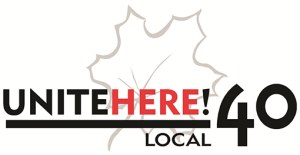COVID-19 Q&A for Members
We are hearing from members that employers are beginning to ask our members about their vaccination status. Members have questions and we take members’ medical privacy very seriously.
We have posed members’ questions to our lawyers and have prepared the following summary. Please reach out if you have questions or need assistance.
Can my employer ask if I’ve been vaccinated?
Employers are entitled to employee medical information where they reasonably need it in order to manage the workforce. Your employer can ask about your vaccination status if it will determine what COVID-19 safety protocols they will implement. However, your employer is required to keep this information private and may not share your status with any employees who do not need to know it for their own work, including managers. Your employer has to ensure it keeps your private medical information secure and protects you from privacy breaches.
What will happen if I refuse to disclose my vaccination status?
If your employer has a reasonable basis to request your vaccination status and you refuse to answer, this may be grounds for discipline, suspension, or potentially even termination. Refusing to comply with a reasonable employer direction is insubordination and can justify discipline up to, potentially, termination. Of course, this depends on whether your employer actually needs to know your vaccination status, which depends on whether that information will determine what COVID-19 safety protocols they implement.
Alternately, employers could address failure to prove vaccination status as a non-disciplinary matter. If your employer requires proof of vaccination in order to perform certain tasks (e.g., public-facing work) that are a core part of your job, your employer could consider lack of proof of vaccination as inability to perform your job. Your employer might keep you off work without pay until you obtain proof of vaccination. This is similar to what happens when an employee who requires a driver’s licence to do their job loses their license temporarily: they are held out of work until their license is reinstated, if this is a reasonably brief period.
Can my employer require me to get vaccinated?
The answer to this question depends on the circumstances of your work. Employers have an obligation to ensure the health and safety of all workers. Employers also have a legitimate interest in protecting the health and safety of guests or customers. If you work in an environment where being unvaccinated could threaten the health and safety of other employees, guests, or customers, and less intrusive safety measures like masking and ventilation are insufficient, then your employer could be in a position to require vaccines.
For example, if you work in maintenance or on the phones and do not regularly interact with hotel guests, it is very unlikely that your employer could require you to be vaccinated as a condition of employment. On the other hand, if you are a server in a hotel restaurant where public health orders require patrons to be double-vaccinated, your employer would have a better argument that it is reasonable to require you, too, to be double vaccinated.
Because the law around mandating vaccines is still very unclear, most employers are erring on the side of not imposing vaccine mandates. Few employers outside healthcare settings are requiring employees to be vaccinated. We think it is more likely that employers who want their employees to be vaccinated to work in public-facing roles will simply not schedule unvaccinated employees to do that work, rather than disciplining or dismissing unvaccinated employees.
One of my co-workers has not been vaccinated and I don’t feel comfortable working with that person. What can I do?
This also depends on the context and whether there are any extra factors making this situation particular risky for you. If you have a medical condition that places you at higher risk from COVID, or if you live with someone who does, you might be entitled to a workplace accommodation. However, if you don’t have any higher risk factors then your employer’s only obligation is to comply with public health orders.
Right now, that means your employer must require masks in all public indoor settings but not in parts of the workplace that are not accessible to the public. Hotel restaurants and bars must prohibit socializing between tables and dancing. Organized gatherings are subject to capacity restrictions.
As of September 13, hotels, restaurants, and bars must require proof of vaccination for members of the public to access hotel restaurants, bars, gyms or exercise facilities, and indoor events with 50 or more people like weddings, parties, and conferences. This does not apply to employees at work. Employers are allowed to permit unvaccinated employees to work in these environments.
